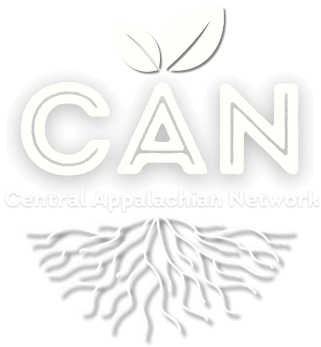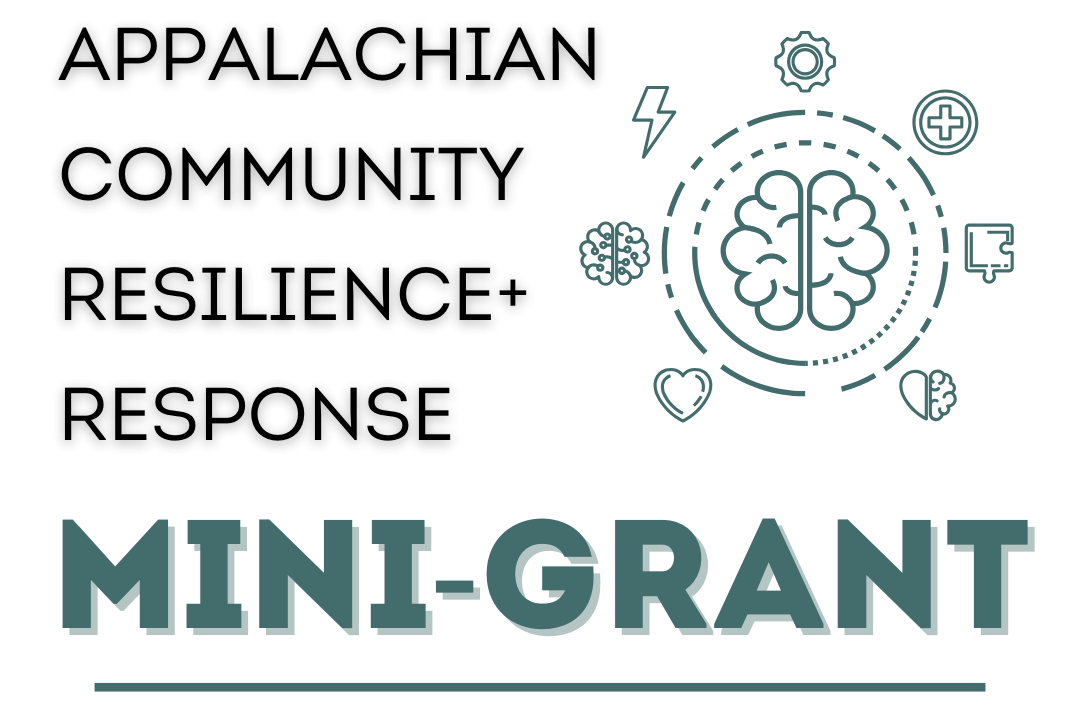The Central Appalachian Network (CAN) is pleased to announce the launch of the Appalachian Community Resilience + Response Mini-Grant Program (ACRR). This catalytic grant aims to support local communities and organizations throughout Central Appalachia in increasing their ability to adapt to, prepare for, respond to, and recover from natural disasters and changes in environmental conditions. By taking advantage of near-term state and local opportunities, awardees will continue making progress and building power for long-term systems change in communities looking to grow their resilience to natural disasters.
BENEFITS TO AWARDEES
We anticipate making 12-15 awards of $5K-12K each. Preference will be given to projects that leverage additional resources, contribute to the body of cultural and scientific knowledge, or help create replicable models for resilience in Appalachian communities.
Awardees will have access to a series of monthly webinars May – October 2025 that will combine practical information on resiliency-building strategies with advocacy and action opportunities. They will also have access to additional resources being developed by CAN’s Community Resilience and Adaptation Working Group (CRAWG).
Awardees will be invited to join as a member of CRAWG, which works throughout the region to advance resilience planning in Central Appalachia by collaborating on research, resources, best practices, and opportunities through peer learning and knowledge sharing.
Support and technical assistance from the mini-grant subcommittee during the project implementation.
ALLOWABLE ACTIVITIES
- Community engagement
- Pre-development costs for projects planning to seek additional funds
- Acquiring technical assistance or consulting
- Grant-writing
- Environmental and/or economic impact analysis
- Covering training-related expenses
- Development or implementation of emergency response plans
- Engineering or architectural plans
- Matching funds for other grants/funds
Example projects may include (but are not limited to):
- Deep community engagement activities around resilience to kick off larger programming/projects
- Farmers and small businesses implementing conservation or energy efficiency practices
- Emergency response volunteer/mutual aid networks that support in developing or implementing their response or recovery plans
- Using arts/creativity to engage the community
- Collecting and using stories and art from natural disaster survivors
- Community wide mitigation/adaptation planning process
TIMELINE
Applications accepted May 7 through June 27, 2025. Awards announced July 31st. Final reports due March 13th 2026.
ELIGIBILITY CRITERIA
Applicants should be economic development organizations, 501c3 nonprofits, a unit of local government, community-based organizations, and businesses or individuals willing to find community or government partners.
This grant is available to those within the Appalachian Region.
If you are a neighboring area not within the map, but your service/product benefits the Appalachian Region, you may still apply.
GUIDING GOALS OF CRAWG
- Develop a comprehensive understanding of existing models and tools to enhance community resilience planning, adaptation, and mitigation in rural communities.
- Establish coordinated structures for resource sharing, research collaboration, funding opportunities, and joint projects.
- Ensure the availability of accessible models and tools that effectively engage communities in resilience planning and response, informed by research and gap analysis.
- Create a comprehensive outreach strategy to reach and effectively onboard engaging participants.
- Implement and assess the resilience planning and response model through a regional pilot program.
If awarded a grant, applicants must be willing to participate in at least three regular CRAWG Working Group calls to provide progress updates and communicate regularly with CRAWG partners. Calls are typically held the fourth Tuesday of the month from 2:00 – 3:00 pm. Financial assistance to attend these calls can be included in the mini-grant application. Awardees also agree to sign a Memorandum of Understanding, submit a W-9 (if applicable), present on the progress of the project during a regional webinar, and submit a final report of the project’s outcomes by March 13th 2026.
Any questions about the mini-grant proposals should be submitted to the CRAWG Coordinator (Kim Ross, kim@opencirclestudio.com)
Mini-Grant Scoring Rubric
Each application will be scored from 1 to 5 in each category:
- 5 = Exceptional
- 4 = Strong
- 3 = Satisfactory
- 2 = Needs Improvement
- 1 = Insufficient
1. Community Input and Engagement (5 points)
- Clear evidence that the project idea arose from community needs, feedback, or lived experiences.
- Authentic strategies for engaging diverse community members (including historically underrepresented groups).
- Meaningful roles for community members in shaping or implementing the project.
2. Community Resilience Building (5 points)
- Clear connection to enhancing the community’s ability to adapt to, respond to, or recover from environmental changes or disasters.
- Project aligns with one or more resilience strategies (e.g., emergency planning, conservation practices, mutual aid networks).
- Potential for long-term or sustainable resilience benefits beyond the grant period.
3. Description of Need and Alignment with Funding (5 points)
- Demonstrates a clear and compelling need that matches the goals of the mini-grant program.
- Strong rationale for how the funding will address the need.
- Budget is reasonable, well thought-out, and focused on impact (preference for staff time, consultants, or technical assistance).
4. Catalytic Impact (5 points)
- Project has a clear potential to spark additional funding, replication, scaling, or system-level change.
- Describes how this project will leverage, amplify, or build momentum for larger efforts.
- Identifies opportunities for collaboration and knowledge-sharing with other communities.
5. Feasibility and Capacity (5 points)
- Clear, achievable plan with realistic milestones and timelines.
- Applicant (or partners) demonstrates the capacity to manage funds, deliver outcomes, and complete reporting requirements.
- Commitment to participate in CRAWG learning calls, final reporting, and resource sharing.
Total Points Possible: 25
Additional Notes:
- Preference will be given to applications that clearly show leveraging of resources, contribute to regional knowledge, or create replicable models.
- Reviewers should consider diversity, equity, and inclusion when scoring all categories.


